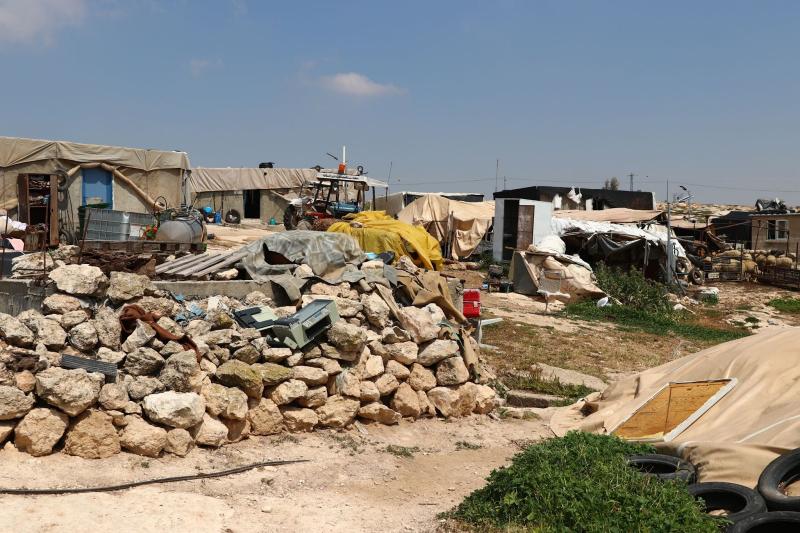To understand in-depth the situation facing Susiya’s families we need to go back in history. The community of Susiya village peacefully lived in “Al-Qaryteen”, a village north of the Negev, until the Nakba when the community left their village because of the war. They moved with what they could bring of their sheep and settled in Susiya. In a visit to “Khirbet Susiya”, the CPT Palestine team talked with a 75-year-old Palestinian man who told us about his story. “We settled at Susiya because we are farmers and we have our sheep with us on the journey. We lived here safely during Jordanian control,” he said.
After Al- Naksa, in 1983, the Israeli settlement of Susiya was built and in 1986 the land was confiscated for “public purposes”. The Israeli military forcibly displaced the Palestinians who lived in Susiya, claiming it as an archeological site for Jews. Some families have entirely left the village, but other families who owned lands near Susiya moved to their family’s lands, which is now called “Khirbet Susiya”.
The original Susiya village is called “Ancient Susiya,” and many international travel platforms including Tripadvisor consider it as an Israeli archeological site. It has a National Park where people have to get a ticket to have access to it.
The Israeli military has demolished the Palestinian village several times, the most significant one was in 2001. The military carried out collective punishment after the killing of an Israeli settler. Since then, Susiya’s people are living in poor living conditions and health conditions in tents and caves. The Civil Administration refused to provide a master plan for the village to enable its residents to build houses legally and connect to the water and power grids. It also rejected families’ applications for building permits.

Many international and Israeli human rights organizations have been trying to push the Israeli government to prepare a master plan for the village, but these attempts have been blocked every time.
Palestinians live in a cage where they are only allowed to move with their sheep up to a specific distance. If they cross that invisible border they are legally responsible for anything that happens to them, including settler attacks.
Meanwhile, Israeli settlers are building new outposts around the settlement and the village, and they have attacked the families several times. These attacks include property damage such as cutting off and burning trees and also physically attacking Palestinians which has caused serious health issues. The investigation of many of these incidents was closed on grounds of insufficient evidence or an unknown offender. The families are taking turns at night to protect their community. Every night there are a couple of men who will guard the village in case the settlers launch any kind of attack.
The community is still trying to demand their rights and make appeals on every demolishing order they receive. At the same time, they are constantly waiting for their house to be demolished at any time, or for a miracle to happen to stop this injustice.
I asked a member from the community, why wouldn’t you raise a complaint? “We are already doing that, but to whom do you complain if your opponent is the judge?” he answered.
Read more about “Khirbet Susiya”




